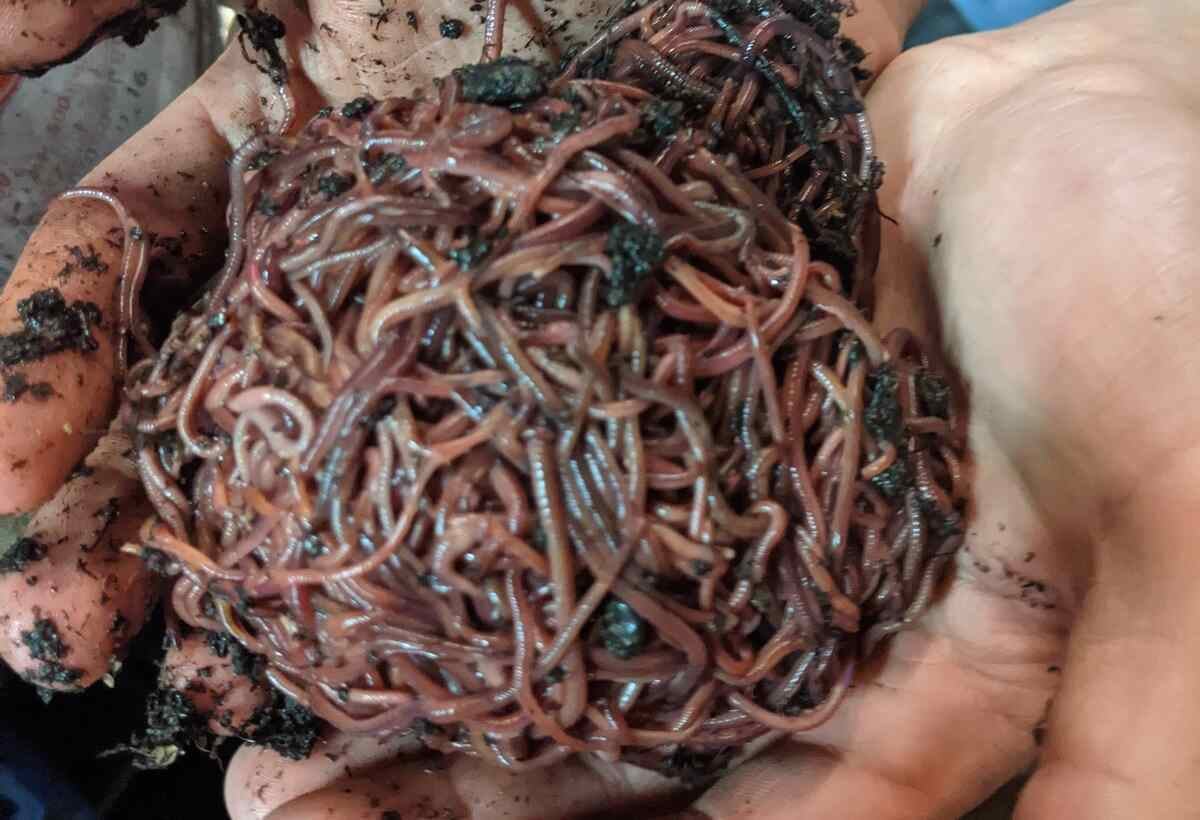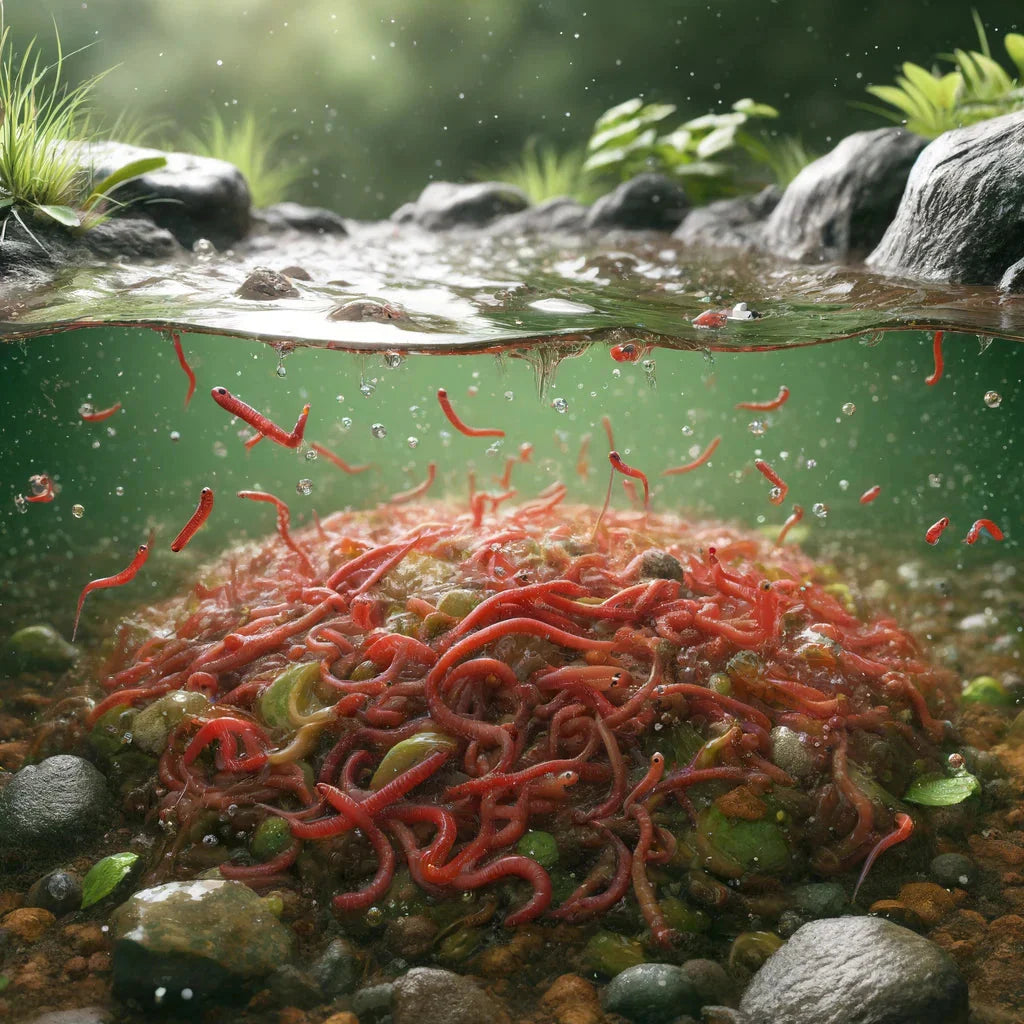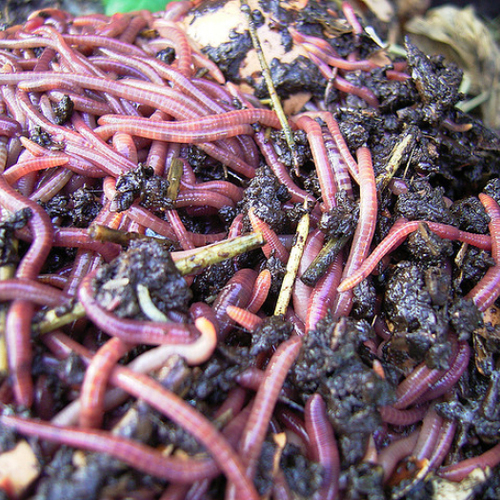Active red worms: Make composting easy
Wiki Article
Why Red Wigglers Are Important for Organic Farming
Red wigglers play a critical function in natural farming, mostly with their unique capability to decay natural materials and enhance soil health and wellness. The level of their influence on agricultural methods and dirt biology elevates intriguing concerns regarding the future of natural farming.Duty of Red Wigglers in Dirt Wellness

Additionally, red wigglers boost dirt structure by developing channels as they delve. These channels enhance oygenation and water infiltration, advertising a much healthier root environment. Their task also assists in maintaining ideal dampness degrees, which is important for healthy plant development.

Advantages of Worm Castings
Worm castings, the nutrient-rich waste matter generated by red wigglers, function as a powerful amendment for natural farming. These castings are brimming with important nutrients such as nitrogen, phosphorus, and potassium, which are vital for plant development. Unlike artificial fertilizers, worm spreadings release nutrients slowly, giving a consistent supply in time and reducing the threat of nutrient leaching and overflow.Furthermore, worm spreadings improve dirt structure and aeration, advertising much healthier root systems. Their high raw material content boosts dampness retention, allowing plants to much better stand up to drought problems. Additionally, worm spreadings contain valuable bacteria that sustain plant health and wellness by subduing microorganisms and boosting nutrition uptake.
The application of worm spreadings can bring about enhanced plant yields and enhanced top quality of fruit and vegetables, making them an indispensable resource for natural farmers. Their usage also lines up with sustainable farming methods, adding to soil fertility without the unfavorable ecological impacts connected with chemical plant foods. In general, the unification of worm spreadings into farming methods fosters a much more resilient and effective community, emphasizing the importance of red wigglers in natural farming systems.

Enhancing Nutrient Cycling
(red wiggler farming)Nutrient biking is a vital process in chemical-free farming, and the integration of red wigglers plays a crucial function in enhancing this cycle. These earthworms contribute dramatically to the breakdown of raw material, helping with the makeover of complicated natural materials right into simpler, a lot more obtainable nutrients for plants. As red wigglers take in decaying organic issue, they secrete nutrient-rich spreadings, which are including beneficial microorganisms. This microbial activity additional help in the decomposition procedure, ensuring that crucial nutrients are readily available for plant uptake.Furthermore, red wigglers assist to accelerate the mineralization of nutrients, converting them from inert types right into bioavailable forms that plants can absorb. This process is important for preserving dirt fertility and advertising healthy and balanced crop growth. The existence of red wigglers likewise urges a varied soil environment, promoting an equilibrium of nutrients that supports different plant varieties.
Improving Dirt Framework
The enhancement of dirt structure is crucial for promoting a healthy farming community, and the task of red wigglers dramatically contributes to this improvement. These earthworms play a vital duty in freshening the dirt and producing a network of channels that help with water infiltration and root penetration. As they burrow through the soil, red wigglers separate compressed layers, allowing for far better oxygen exchange and advertising microbial task.In addition, the raw material generated from their waste, understood as vermicast, enhances dirt gathering. This procedure produces stable clumps about his of soil particles, improving soil porosity and reducing disintegration (red wigglers). The visibility of red wigglers additionally encourages the advancement of useful fungal networks, which are vital for nutrient uptake by plants
Promoting Lasting Practices
Integrating red wigglers into chemical-free farming practices not just improves soil health yet likewise promotes sustainable farming methods. These earthworms play a vital duty in nutrition cycling, transforming organic waste right into valuable compost that enriches the soil. By making use of red wigglers, farmers can successfully decrease reliance on synthetic plant foods, thus lessening chemical drainage and its harmful impacts on communities.In addition, the consolidation of red wigglers motivates the practice of reusing natural materials, such as kitchen scraps and farm waste. This waste reduction approach not just reduces disposal costs but likewise cultivates a closed-loop system where nutrients are continually returned to the dirt (red wigglers). Such practices are essential in mitigating environment modification, as they boost carbon sequestration and decrease greenhouse gas exhausts
Moreover, red wigglers enhance water retention in the dirt, which is essential in times of drought. Their burrowing tasks create channels that enable water to pass through deeper right into the ground, thus promoting efficient water use. Ultimately, incorporating red wigglers right into organic farming not just sustains biodiversity but additionally aligns with the concepts of lasting farming, offering an alternative strategy to food production.
Conclusion
To conclude, red wigglers play an essential function in natural farming by substantially boosting dirt health and fertility. Their capacity to break down organic issue and generate nutrient-rich castings cultivates a flourishing microbial neighborhood, which is important for vitamins and mineral cycling. Additionally, the tunneling activities of these worms improve soil structure and aeration, helping with much better water seepage and origin development. Therefore, the integration of red wigglers into agricultural methods is important for promoting sustainability and improving general soil quality.Report this wiki page